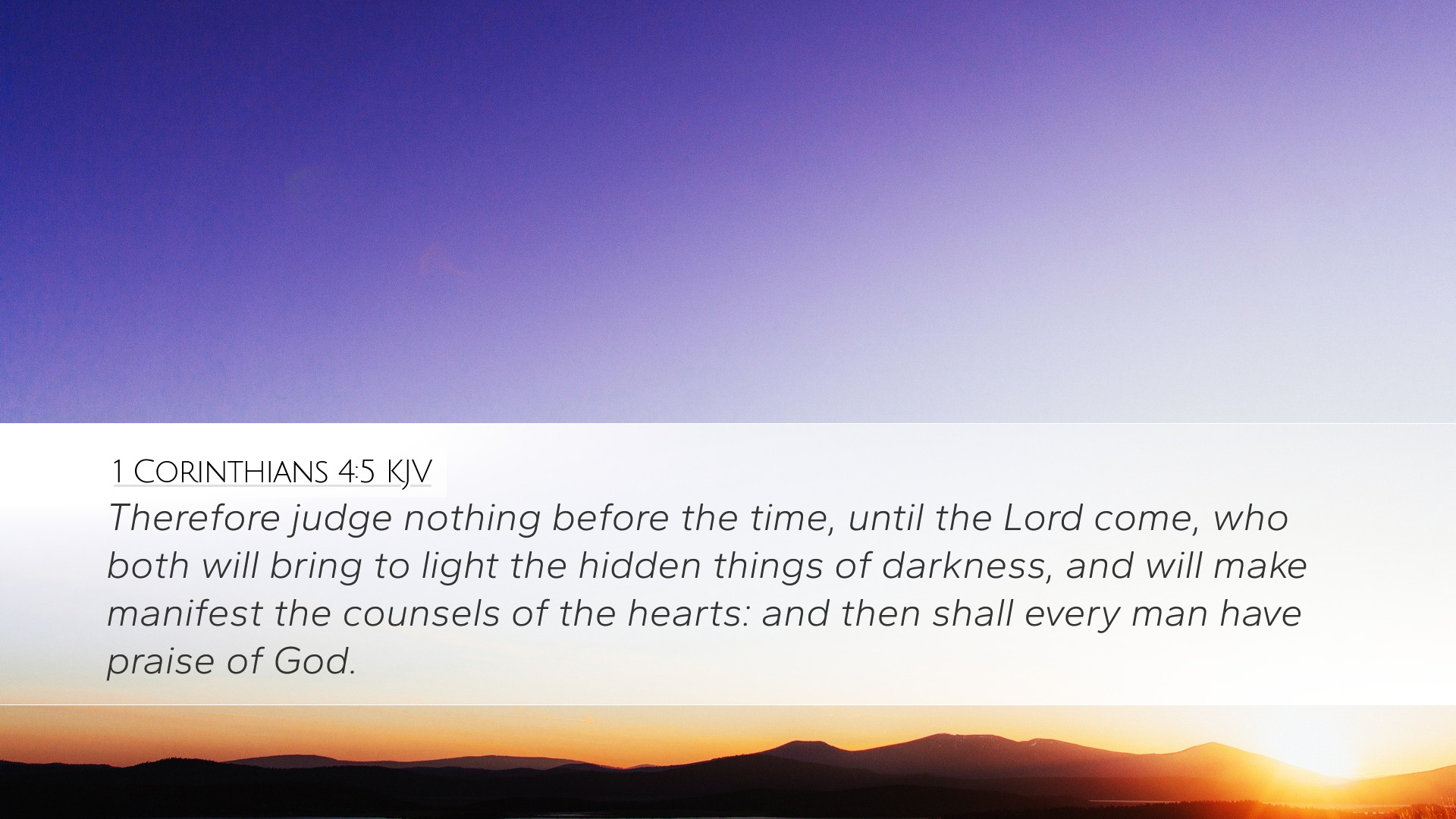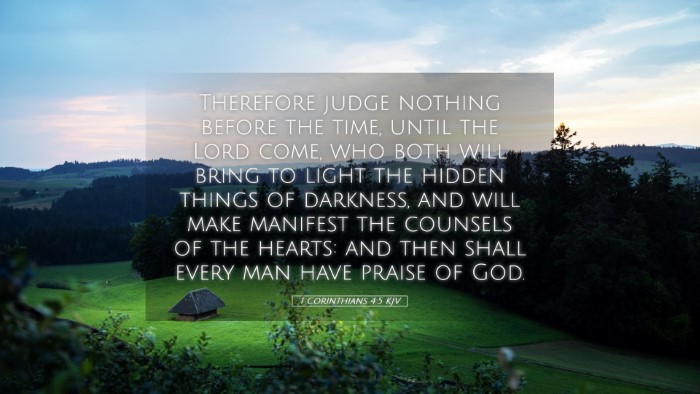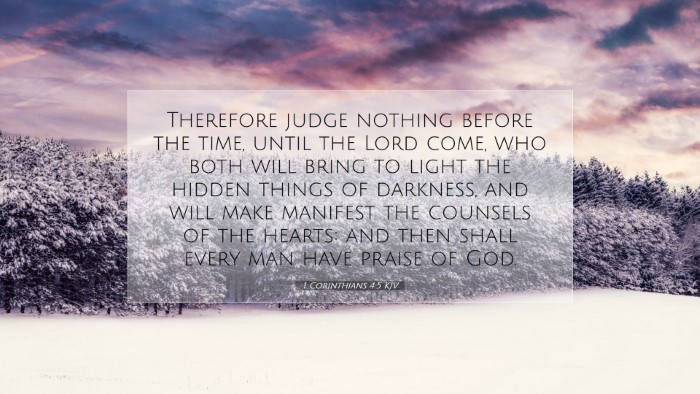1 Corinthians 4:5 Commentary
Verse Text: “Therefore judge nothing before the appointed time; wait until the Lord comes. He will bring to light what is hidden in darkness and will expose the motives of the heart. At that time each will receive their praise from God.”
Introduction
This verse from Paul's first letter to the Corinthians encapsulates a profound theological and practical admonition regarding judgment and the role of divine revelation. In the context of a community marked by divisions and strife, Paul urges a perspective that transcends human evaluation, pointing to the eschatological fulfillment of God's justice.
Understanding the Context
In the preceding chapters, Paul addresses issues of spiritual pride and divisions among the Corinthians. The church had become embroiled in factions, with some claiming allegiance to different leaders (1 Corinthians 1:12). In this light, Paul emphasizes that human judgment is limited and that ultimate authority belongs to God, who reveals all truth in His timing.
Exegesis of the Text
-
“Therefore judge nothing before the appointed time”
Paul advises against hasty judgments about spiritual leaders and matters. This injunction against premature evaluation highlights God's sovereign role in future judgment.
-
“wait until the Lord comes”
This phrase implies an eschatological focus—believers are reminded that true justice will occur at the return of Christ, who will reveal hidden realities.
-
“He will bring to light what is hidden in darkness”
Paul assures that God will illuminate the spiritual state of all individuals, exposing the true nature of their hearts, intentions, and actions.
-
“will expose the motives of the heart”
This reflects a core theological principle; God values the intentions behind actions, not just the actions themselves. This aligns with Jesus' teachings in the Gospels, stressing the heart's condition (Matthew 15:18-19).
-
“At that time each will receive their praise from God”
The future reward and praise from God underscore His grace. This is an affirmation of the ultimate recognition that believers will receive, highlighting the importance of divine validation over human commendation.
Theological Implications
The impermanence of earthly judgment is a key theme in Biblical theology. As Matthew Henry notes, it is not the judgment of man that ultimately counts, but the assessment of God. Paul’s reminder calls Christians to live righteously, as God’s judgment will ultimately reveal the true worth of their lives, including hidden aspects that may be overlooked by others.
Practical Applications
The call to refrain from judgment can have far-reaching effects in a church community. It encourages humility, fostering an environment where believers refrain from gossip, criticism, and division based on superficial evaluations. Pastors are encouraged to point their congregations toward a future hope, one where God provides justice, thereby cultivating patience and unity.
Insights from Public Domain Commentaries
-
Matthew Henry:
Henry emphasizes that God will reveal everything needed to be known about His servants at His return. He reminds the faithful that while men may judge outward acts, only God knows the heart.
-
Albert Barnes:
Barnes underscores the confidence believers can have in God’s ultimate justice. He points out that God's judgments will be impartial and thorough, rewarding those whose motives were pure, regardless of human misjudgment.
-
Adam Clarke:
Clarke stresses the importance of living in anticipation of Christ’s return. He encourages Christians not to be overly concerned with the opinions of others, focusing instead on the assurance that God’s approval is what truly matters.
Conclusion
1 Corinthians 4:5 serves as a vital reminder of the transient nature of human judgment and the lasting significance of divine evaluation. In an age where opinions abound and judgments are often made hastily, this verse challenges believers to adopt a posture of humility and discernment, waiting for the Lord's coming when all things will be made clear. For pastors, students, theologians, and Bible scholars, this passage invites deeper reflection on the nature of service, motivation, and the ultimate fitness for Kingdom work.


